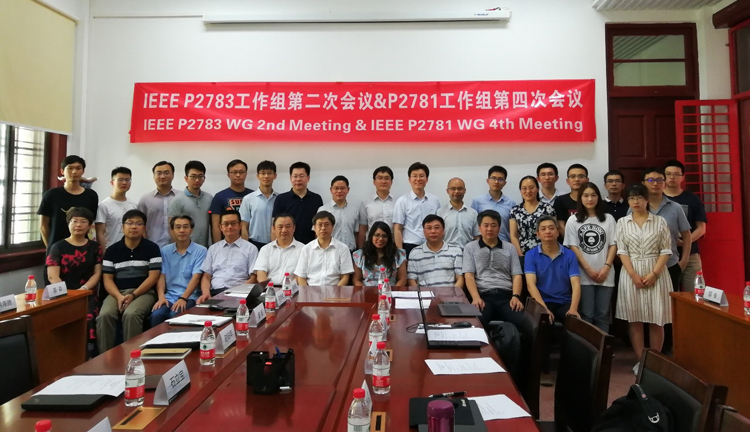Meetings for IEEE Standards P2781 WG and P2783 WG held in China
SCUT and CSG held IEEE Standard Meetings for P2781 WG and P2783 WG at South China University of Technology on June 28, 2019.
The 4th Meeting for IEEE Standard P2781 (Load modelling and simulation WG) and the 2nd meeting of IEEE Standard P2783 (Quick response system WG) were held at South China University of Technology (SCUT) on June 28, 2019. These two standard meetings were organized by SCUT and SEPRI, China Southern Power Grid. IEEE PES Loads Subcommittee Chair, IEEE PES SBLC Asia-Pacific WG Chair, Professor Jizhong Zhu of SCUT moderated the events. 33 experts from Asia-Pacific areas attended the meetings. IEEE Standard Association program manager Malia Zaman attended the meeting too.


Both IEEE P2781 WG and IEEE P2783 WG are sponsored by IEEE PES Smart Buildings, Loads and Customer Systems (SBLC) Committee. IEEE PAR 2781 and IEEE PAR 2783 were approved by IEEE SA in May, 2018, and in October, 2018, respectively. Professor Jizhong Zhu was appointed as Chair for these two WGs.
The scope of this IEEE P2781 guide is the definition of load models for various conventional and emerging elements in the generation, transmission, distribution and customer sectors at all voltage levels. This includes guidance for developing load models, identifying load model parameters, and utilizing measurement data for load model development at various voltage levels. It also includes modelling practices for emerging elements such as power electronics connected elements, electrical vehicles and charging stations, better utilization of Information and Communication Technology (ICT) infrastructures in load model development, and dynamics associated with customer involvement.
P2783 guide provides engineering principles, practices, and guidelines for the selection and application of fast response systems of customer-side loads in modern power grids. It considers the impact of increasing the penetration of renewable energy sources in power systems. The definitions, classification and characteristics of rapid load response resources are elaborated in this guide, such as active response loads, interruptible loads and energy storage. It provides complementary approaches for mitigating frequency stability issues of bulk power systems and microgrids, as well as absorbing renewable power. Function architecture, control strategy, and system implementation for quick-response systems of customer-side loads are explored in this guide.
Both the meetings at SCUT were focused on revisions of IEEE standard draft reports for P2781 and P2783.



The meetings were conducted to motivate the entities and experts in China to join the IEEE as well as IEEE Standard Association, attend the IEEE standard meeting, write the standards or guides and submit them to IEEE SA to make contributions.
Jizhong Zhu, Ph.D. Prof.
Chair, IEEE PES Loads Subcommittee
Chair, IEEE P2781 WG and IEEE P2783 WG
Professor, South China University of Technology
Email: zhujz@scut.edu.cn; jizhong.zhu@ieee.org
